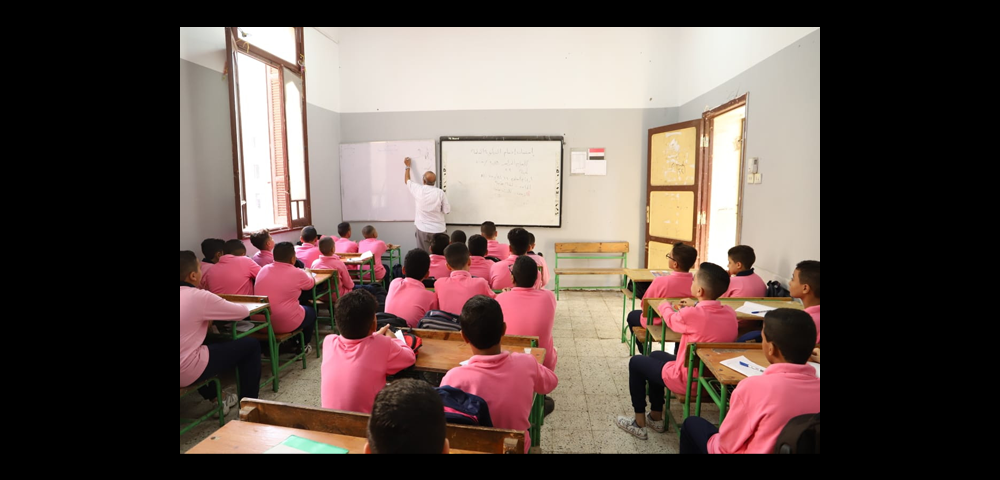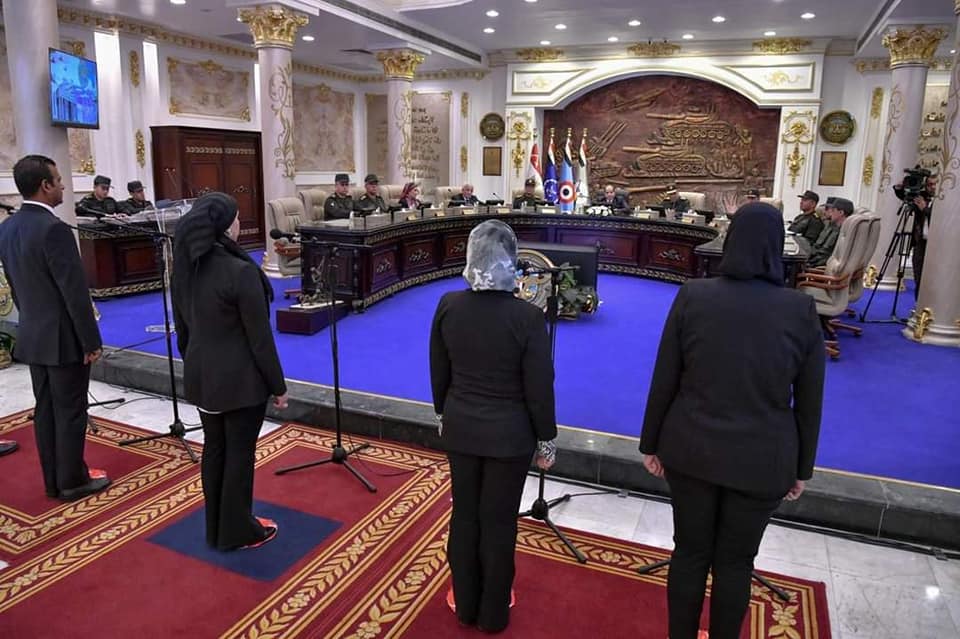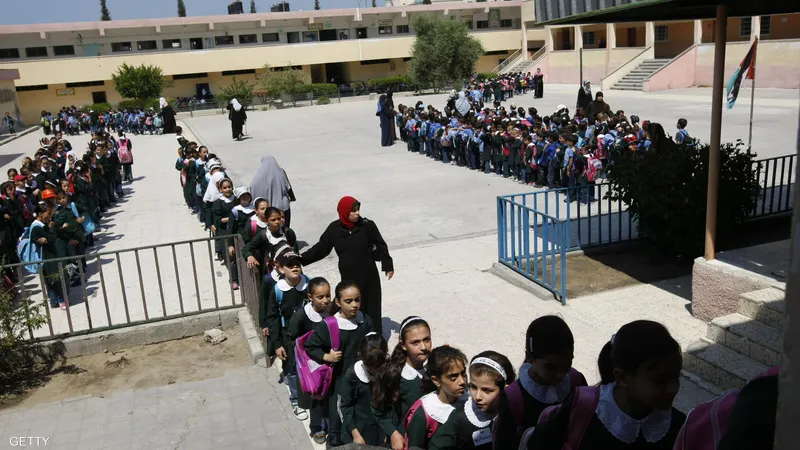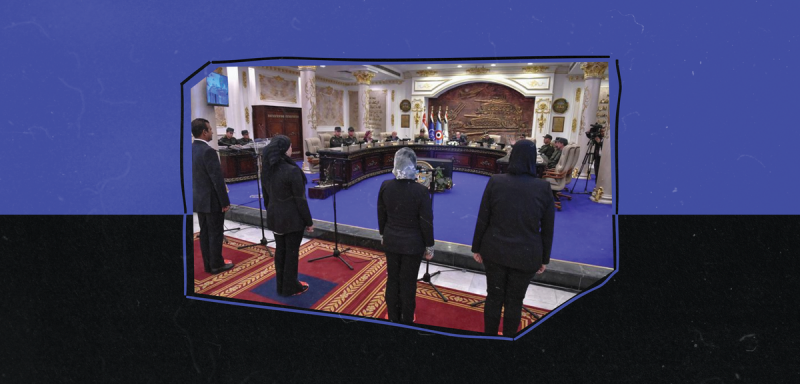More than a year ago, Amani S., a Bachelor's degree holder in Early Childhood Education since 2016, began preparing for the Egyptian Ministry of Education and Technical Education (MoETE) competition. She aspired to be one of the 30,000 teachers hired to fill the severe shortage faced by Egyptian schools in Early Childhood Education and classroom teaching. Little did she know that, after successfully completing a series of tests, training, medical and physical assessments, she would be excluded from the competition due to her weight, despite it not being a prerequisite during the initial announcement.
Amani's preparations for the Ministry of Education competition were spurred by President Abdel Fattah El-Sisi's directives in January 2022, wherein he called for the appointment of 30,000 teachers annually for a period of five years, totaling 150,000 male and female teachers. This move aimed to tackle the pressing issue of teacher shortages, estimated by several experts to reach 500,000 teachers. For Amani, becoming a government-appointed employee was a dream, especially given the scarcity of new appointments lately, particularly for teachers. Assignments for education college graduates had ceased since the 1990s, and appointments were now being conducted through competitions, with the last one held in 2014, almost a decade ago. These appointments came to a halt due to austerity measures aimed at reducing the number of government employees across various fields.
Months after the president's directives, the Ministry of Education, in collaboration with the Central Agency for Organization and Administration, announced the opening of applications for the competition, to contract with 30,000 teachers in Early Childhood Education and classroom teaching in July 2022. The ministry emphasized that the competition will have strict procedures and conditions to ensure the selection of qualified candidates, while also preventing any interference or favoritism. The entire application and testing process would be conducted electronically, eliminating any human intervention. Additionally, a new element has been introduced to these government employment competitions in Egypt; the involvement of the Armed Forces through the Military Academy in selecting job applicants, including teachers, for these positions.
A year of tests and training
More than 135,000 teachers applied for the competition, and approximately 36,000 candidates, including Amani, met the requirements for the Early Childhood Education position. Additionally, over 60,000 candidates qualified for the classroom teaching position. They all embarked on the journey of competitive exams from August to December 2022, following the schedule meticulously prepared by the Central Agency for Public Mobilization and Statistics. The government job portal, now responsible for all Egyptian government job vacancies, officially announced the commencement of the exams, and the next step would involve retrieving the files from the Military Academy.
Amani, a talented candidate hailing from the Beheira Governorate, diligently took her exams between September 3rd and 5th, adhering to the regional schedule. The electronic test, developed in collaboration with around 30 professors from faculties of education, comprised five components:
- Behavioral competencies: This section is aimed to assess merit, and general qualities expected from all administrative employees of the state, including discipline and a strong inclination towards continuous self-learning.
- Language skills: Applicants were evaluated on their proficiency in both Arabic and one foreign language of their expertise.
- Cognitive and technological competencies: This segment sought to measure the applicant's knowledge about the country, such as major projects, national strategies, and other general information. Furthermore, it assessed their prowess in utilizing computers and related applications.
- Educational competencies: This part focused on essential qualities required for a successful teacher, encompassing communication skills, mental well-being, effective teaching methods, as well as management and supervision abilities.
- Specialized competencies: This entails a test that assesses the teacher's expertise in their field of specialization.
Despite the challenges and novelty of these tests in teacher recruitment competitions, Amani successfully cleared them and was among the 11,990 applicants who excelled in the "early childhood education" category. She believed that overcoming these rigorous steps was the most challenging part, and she now only needed to undergo mental and physical training to begin teaching, as previously announced by the Ministry of Education. However, her expectations took an unexpected turn.
After Amani and others passed the physical and medical evaluations, she was taken aback to find she was disqualified from the competition due to her weight exceeding the set limit. At the time of assessment, her height measured 169 cm and her weight at 103 kg
In March, the Ministry of Education initiated the educational training for the successful teachers in the competition, a total of 28,167 out of the targeted 30,000 in the fields of early childhood education and classroom education for the first grades. This four-day training, organized in various governorates, aimed to equip participants with knowledge, skills, and attitudes necessary for effective teaching and learning methods, effectively preparing them for their roles as educators in accordance with the new education system.
 A group of students in a classroom in an Egyptian school
A group of students in a classroom in an Egyptian school
In May, a three-day mental and physical training program commenced with the objective of "introducing national projects and fifth-generation wars," fostering a sense of national belonging, enhancing mental and physical capabilities, improving communication skills, and preparing teachers for physical examinations and personal interviews that complemented the training program.
Following the Central Agency for Organization and Administration's role in conducting the examinations and the Ministry of Education's involvement in educational and mental training, comes the role of the Military Academy, newly introduced in government job competitions. It was tasked with conducting the physical and medical assessments for all applicants. Despite Amani and others passing the physical and medical evaluations, she was disheartened to find that she was disqualified during the assessment by the authority due to her weight exceeding the defined limit. At the time of assessment, her height stood at 169 centimeters, while her weight was at 103 kilograms.
After excluding countless teachers from the assessment due to health conditions such as excess weight or pregnancy, many Egyptians argued that these conditions weren't stated beforehand and that such requirements contradict the constitution and education laws
Education: new procedures
After the exclusion of numerous male and female teachers from the Military Academy's assessment due to health conditions such as being overweight or pregnant, many of them expressed their frustration on social media. They pointed out that these conditions were not mentioned when the competition was announced, and they argued that such requirements contradict the constitution and education laws. In response to the uproar, the Ministry of Education issued a press statement assuring that a second chance would be given to teachers with valid health reasons, but only "after the current reasons have ended."
However, the statement left many aspects unclear, particularly regarding the procedures for providing the second chance and the criteria for determining the "end of the health condition", especially in the case of being overweight. Pregnancy and childbirth are considered temporary events with specific durations.
To shed light on the matter, Raseef22 reached out to an anonymous source within the Ministry of Education to get more insight into the exclusion of teachers and the process of granting them a second chance after their health conditions have been resolved.
The source clarified that the Military Academy's approach, including medical examinations and the requirement for candidates to have a proper weight for state employment, is a new policy adopted by the government across various job announcements. It has been previously implemented in other ministries like the Ministry of Awqaf (Religious Endowments) and the Ministry of Electricity and will be a prerequisite for all leadership positions in future announcements. However, the difference lies in the fact that other employees undergo six months of training at the Military Academy, while teachers, due to their larger numbers, receive only three days of training.
Regarding the Ministry of Education's statement, the source indicated that a second chance would indeed be granted to the excluded teachers to complete their assessments. However, it does not imply a compromise on the requirements. Instead, they will be given a "grace period to end their health condition" that they were rejected for, and join the subsequent batches of applicants. "The President has directed the appointment of 150,000 teachers over five years, and the excluded teachers have the opportunity to take a second test with one of the upcoming batches after their health condition has ended. If their condition ended now, they can join the assessments of the second batch, without having to retake all the tests. If it hasn't ended, they'll have to postpone the test to the third batch."
The source within the Ministry of Education: Being overweight is the main concern, as reducing weight might not be feasible for some individuals within a short timeframe, but the Military Academy allows applicants "30 kilograms above the ideal weight"
In February, the Central Agency for Organization and Administration made an announcement about commencing the second wave of hiring 30,000 new teachers. Currently, they are preparing to release the exam schedules for eligible applicants along with the required documents.
The source pointed out that the Ministry of Education is determined to address the severe shortage of teachers. However, the health conditions of some applicants have become a hindrance to achieving this goal. The source stated, "For years, we have been waiting for approval to hire new teachers and allocate funds for their salaries. It's difficult to accept anyone whose health condition may prevent them from performing their required duties. That's the government's explanation for the exclusions." The contract for the selected teachers will be for two years, followed by permanent placement in the government's administrative system.
Regarding the health conditions that the government is concerned about, the source confirmed that childbirth is a right for women, and it is considered a temporary issue that allows applicants to reapply after its resolution for the subsequent rounds of hiring. However, the matter of being overweight is more critical as losing weight may not always be feasible for the individuals involved. The Military Academy didn't demand that applicants must have an ideal weight, it just allowed for up to 30 kilograms above the ideal weight, considering it as a safe margin for weight limits. The emphasis is on obesity, as it can lead to severe health issues such as hypertension and diabetes."
Despite this, the source acknowledges the difficulty of controlling health conditions for the hiring process, "For instance, an applicant could have an acceptable weight during the medical assessment but gain weight after being hired. Will there be periodic assessments every six months and could the recruited employees be then excluded accordingly, like what happens in military academies? And if a female teacher was unmarried during the hiring process but later got married and had children, will she be dismissed? These things are hard to control. This particular batch of applicants were especially wronged because there were no clear conditions during the initial application process. With adequate time for preparation, they would have had a full year to match the requirements, or those who couldn't would not have chosen not to apply in the first place."
 President Abdel Fattah El-Sisi overseeing the applicant exams for positions in the Ministry of Education and Technical Education
President Abdel Fattah El-Sisi overseeing the applicant exams for positions in the Ministry of Education and Technical Education
The source pointed out that the ministry has received numerous complaints from applicants with challenging health conditions that are difficult to resolve. A source within the education sector revealed that "some women contacted the ministry and confirmed that their natural weight was suitable for the job. However, due to marriage and the use of birth control pills, their weight increased beyond the acceptable limit". One such case is Sara, who shared her story with Raseef22. She attributed her significant weight gain to birth control pills and fears that stopping them may lead to pregnancy, which would become another barrier to her employment.
Another applicant, Amani, whose testimony was stated at the beginning of this report, gained weight after marriage and having three children. Only four kilograms now stand between her and her dream job, "I weighed 103 kilos at the time of the examination. According to the specifications, my weight shouldn't have been over 99 kilos. After I was rejected, I fell into a state of depression, during which I gained an additional 10 kilograms, after which I tried to follow a diet regimen, and I was able to reduce my weight to under 100 kilograms."
She expressed doubt about the Ministry of Education's promise to grant her a second chance for the medical exam and questioned why some colleagues, who weigh more than her, were accepted while she was rejected, “So far, no one from the Ministry has contacted me, and I will not believe the promises unless they really happen, because I am surprised at how people who weigh more than me were accepted, while I was rejected?
The informed source mentioned that the Ministry of Education has not yet received the final results from the Military Academy, which include the names of accepted teachers. According to circulating figures, out of 28,000 candidates who took the exams, only 23,000 were accepted. The ministry is waiting for the final lists of who was accepted and who was excluded to determine which teachers will be given a second opportunity for testing and will contact them accordingly.
"Many government sectors regularly measure the ideal weight of their employees to ensure they can fulfill their job requirements with efficiency. Though this system isn't entirely novel, it's being implemented for the first time in the Ministry of Education"
Advantages and disadvantages
Assistant Professor of Educational Psychology at the Graduate College of Education at Cairo University, Assem Hegazi, supports the government's new measures. He emphasizes that the role of teachers in classrooms requires a high level of activity and vitality to motivate, encourage, and engage students' minds, igniting their enthusiasm and drive. Therefore, it is crucial to select teachers who possess the ability to achieve these goals, including mobility and ease of movement within the classroom, as well as being able to control the classroom.
Hegazi explains to Raseef22 that various sectors of the state rely on periodic measurements of employees' ideal weight to ensure they can carry out their duties accurately and efficiently. While this system is not entirely new, it is being applied for the first time in the Ministry of Education. He believes it is a positive step that will require further actions to ensure the smooth functioning of education within classrooms.
The failure to clearly announce the conditions regarding excess weight, pregnancy, and childbirth to the teachers before they entered the competition makes the exemption of this batch, which applied without knowing these requirements, a legal necessity.
Hegazi stressed that the new conditions have a noble goal: they aim to improve the work environment, not to belittle or offend anyone, but only to choose the most competent individuals who can genuinely provide high-quality education to students.
 A group of students and teachers at school during the morning assembly
A group of students and teachers at school during the morning assembly
Tamer Shawki, an expert in educational psychology and a professor at Ain Shams University's Faculty of Education, highlights both the advantages and disadvantages of the new procedures for teacher appointments. On the positive side, these measures will ensure that selected teachers are physically active and dynamic in the classroom. Teachers who maintain an appropriate weight for their height are more likely to engage students effectively, and this criterion is equally applicable to pregnant female teachers.
Furthermore, Shawki explains that such requirements will motivate prospective teachers to maintain their ideal weight well before applying for the position. This practice not only helps them avoid health issues like hypertension and diabetes but also sets a positive example for their students regarding personal appearance.
On the other hand, there are several drawbacks to consider with the excess weight and pregnancy conditions. Shawki emphasizes that the failure to clearly announce the conditions to the teachers before they entered the competition makes the exemption of this batch, which applied without knowing these requirements, a legal necessity.
Moreover, he points out that excess weight and pregnancy are not the only factors that can impact teaching capabilities. There are other issues such as speech difficulties or other congenital impairments. Thus, focusing solely on these specific conditions raises questions. Additionally, rejecting the appointment of certain teachers due to these conditions could lead to bullying or discrimination against them, creating feelings of societal rejection and undermining their sense of belonging.
Shawki commends the Ministry of Education's attempt to provide a second chance to overcome health-related challenges, although the specific mechanisms have not been announced yet. He raises a valid concern about those with overweight conditions, as achieving an appropriate weight might require a longer period, compared to pregnant women who give birth and lose the excess weight after some time: Will the Ministry stay in touch with them until their weight reduces?
Raseef22 is a not for profit entity. Our focus is on quality journalism. Every contribution to the NasRaseef membership goes directly towards journalism production. We stand independent, not accepting corporate sponsorships, sponsored content or political funding.
Support our mission to keep Raseef22 available to all readers by clicking here!
Interested in writing with us? Check our pitch process here!



